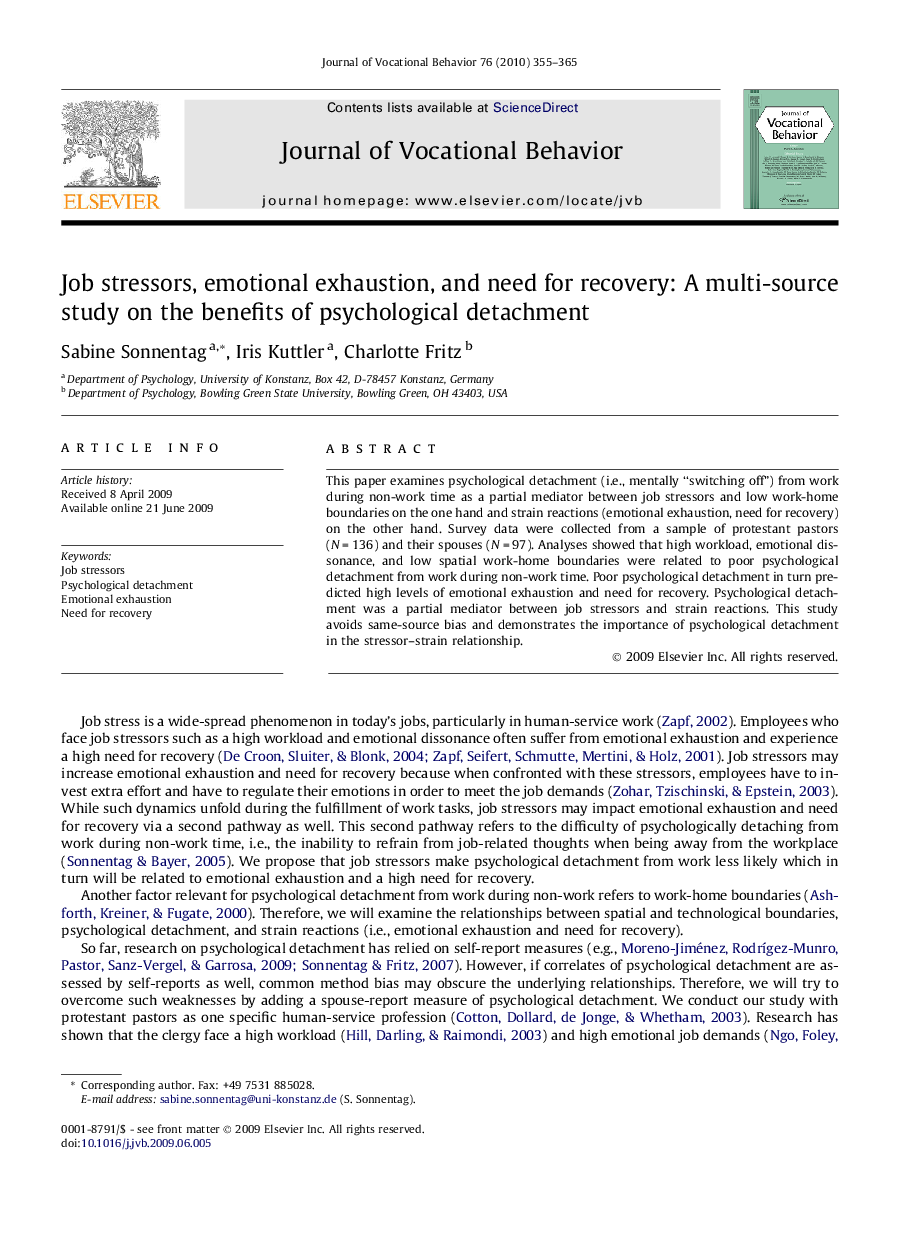| Article ID | Journal | Published Year | Pages | File Type |
|---|---|---|---|---|
| 887393 | Journal of Vocational Behavior | 2010 | 11 Pages |
This paper examines psychological detachment (i.e., mentally “switching off”) from work during non-work time as a partial mediator between job stressors and low work-home boundaries on the one hand and strain reactions (emotional exhaustion, need for recovery) on the other hand. Survey data were collected from a sample of protestant pastors (N = 136) and their spouses (N = 97). Analyses showed that high workload, emotional dissonance, and low spatial work-home boundaries were related to poor psychological detachment from work during non-work time. Poor psychological detachment in turn predicted high levels of emotional exhaustion and need for recovery. Psychological detachment was a partial mediator between job stressors and strain reactions. This study avoids same-source bias and demonstrates the importance of psychological detachment in the stressor–strain relationship.
